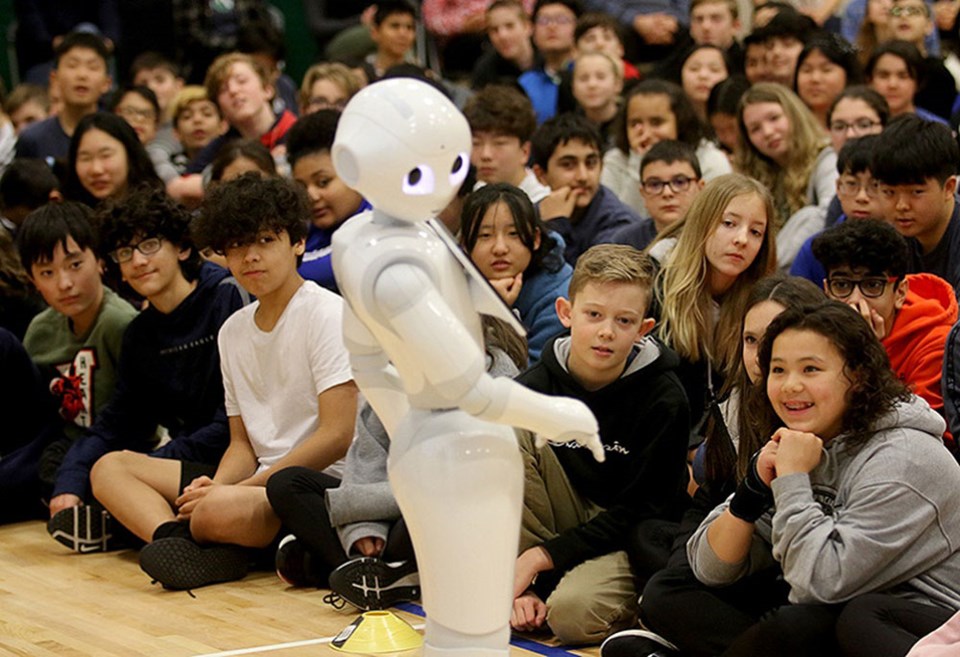Robots that roam school hallways, 3D printers in libraries and students making their own video games, if that sounds like the future, you’d be wrong.
Students in Port Moody, Coquitlam and Port Coquitlam are already participating in programs to boost their science, technology, engineering and math skills.
And more is to come, say top school officials who helped create the district’s new Directions 2025 strategic plan.
This week, the new Directions 2025 Framework was posted to the school district’s website, giving the public a look at what schools will be focusing on in the coming years.
Not surprisingly, “equipping students for a world that requires practical scientific, technical and innovative skills through STEAM and Career Education” is one of the key objectives.
Other objectives include supporting vulnerable learners and improving operational efficiencies in the plan that took several months of work and discussion to complete.
Even during COVID-19, officials thought it was important to update its framework to deal with emerging issues, according to Stephen Whiffin the district’s director of instruction.
Acknowledging that there will be life after COVID-19, Whiffin said it’s important for educators to look toward the future and the skills students will need to be successful.
A WORLD AFTER THE PANDEMIC
“We tried to consider the goals with respect to to them being five-year inspirational and aspirational goals,” Whiffin said. “Technology and its role has been a need in the pandemic but the pandemic shouldn’t be a driver for the change.”
The new framework will guide decision-making in curriculum as well as how the district spends its money, with improving students’ math numeracy skills among the most important goals.
For example, students face an increasingly complicated world where disinformation is sometimes difficult to discern and groups compete for public attention. Being able to compare numbers in a chart or read a graph will help young people navigate this deluge of data.
“When we talk about numeracy, numeracy is not just what people remember in their past as simple arithmetic,” explained assistant superintendent Gerald Shong. “We talk about it as a way of thinking, and numerate thinking is very important for the success of individuals going forward.”
Learning how to create and use technology is also increasingly important Shong and Whiffin said.
LIBRARIES NOW 'MAKER SPACES'
For example, the district has made an investment in micro:bits, which are pocket-sized computers students can learn to code, as well as programmable robots called Spheros. Minecraft, once just a game, is now used to teach students how to program in a fun and creative online world.
School libraries have also been transformed into ‘maker spaces’ where students create objects using 3D printers, while Pepper, a programmable robot, has been installed in a number of schools.
Whiffin said the new Directions 2025 also acknowledges the importance of the arts as a technical skill, especially as it pertains to design. As a result, an “A” for arts was added to STEM for STEAM.
“When we look at STEAM positioning itself as a potential path for students to be productive in society, there is a strong argument for arts and, in particular, digital arts to be a component of that,” Whiffin said.
And while parents may be just trying to figure out what their children are learning in schools, Shong and Whiffin said they can rest assured that their children will be ready for what lies ahead.
“It [Directions 2025] is progressive, it does believe in the future for our kids and families. We look at the Tri-Cities and the Tri-Cities is evolving. We are going to be there in step with our community.”




